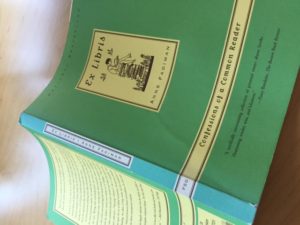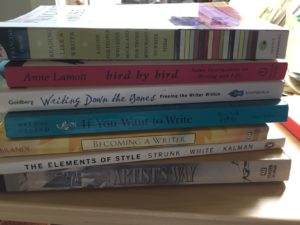 My book club had a brilliant idea: this year, we would read books in translation. That’s how I came upon The Summer Book by Tove Janssen. It is a master class in writing detailed setting and character revealing mini-scenes.
My book club had a brilliant idea: this year, we would read books in translation. That’s how I came upon The Summer Book by Tove Janssen. It is a master class in writing detailed setting and character revealing mini-scenes.
Janssen is Finnish, and part of a Swedish speaking minority. My translation to English is by Thomas Teal. Originally published in 1972, it is amazingly crisp and detailed writing about family on a Finnish outer island and the relationship between a grandmother and granddaughter.
This is a book in which nothing happens and everything happens. There is little to no narrative arc, with the exception of following the two characters through a series of scenic vignettes that take place over one summer. The narrative point of view shifts subtly between the grandmother and granddaughter, Sophie, and sometimes seems to shift to an omniscient third. The shifts happen without the reader becoming particularly aware of them, an accomplishment I always admire.
The relationship between grandmother and granddaughter is beautifully revealed through concise scenes. Both grandmother and Sophia care deeply about the smallest things in their world and they understand this about each other. One day when the father is late back from taking the boat into the village, Sophia becomes worried. Her mother has already died and there are clues throughout the narrative that this loss troubles her deeply. “And all you can do is just read,” she shouts at the grandmother and begins to weep. The grandmother goes into a detailed explanation of all the things the father has to do in the village.
“It can take a long time,” she said.
“Go on,” Sophia said.
“Well, then he has to take everything down to the boat,” Grandmother said. “He has to pack it all in and cover it so it won’t get wet. And on the way down he remembers to pick some flowers, and give some bread to the horse. And the bread’s way down at the bottom of a bag somewhere…” (105-106).
In another scene, Sophia convinces the grandmother to explore the island with her. It is a little too much for the grandmother, who has trouble walking and uses a stick. Sophia is both adult and child in the scene.
They crawled on through the pines, and Grandmother threw up in the moss.
“It could happen to anyone,” the child said. “Did you take your Lupatro?”
Her grandmother stretched out on the ground and didn’t answer.
After a while Sophia whispered, “I guess I can spare some time for you today.”
It was nice and cool under the pine trees and they weren’t in any hurry, so they slept for a while. When they woke up they crawled on to the cave, but Grandmother was too big to get in. “You’ll have to tell me what it’s like,” she said.
“It’s all green,” Sophia said. “And it smells like rot and it’s very pretty, and way at the back it’s holy because that’s where God lives, in a little box maybe” (64).
Often they are cross with each other.
“Can you make kites?” Sophia said, but Grandmother said she could not. As the days went by, they became strangers to each other, with a shyness that was almost hostile. “Is it true you were born in the eighteen-hundreds?” Sophia yelled through the window.
“What of it?” Grandmother answered, very distinctly. “What do you know about the eighteen-hundreds?”
“Nothing, and I’m not interested, either,” Sophia shouted and ran away.
The detail in the writing is most obvious when Janssen describes the setting. An island is already a micro-landscape but Janssen goes to the smallest level of detail possible, enabling the reader to feel exactly what it is like to live in such a space and know it with the same kind of intimacy as the fictional inhabitants. In this passage, the grandmother is resting on the beach.
She turned on her side and put her arm over her head. Between the arm of her sweater, her hat, and the white reeds, she could see a triangle of sky, sea, and sand–quite a small triangle. There was a blade of grass in the sand beside her, and between its sawtoothed leaves it held a piece of seabird down. She carefully observed the construction of this piece of down–the taut white rib in the middle surrounded by the down itself, which was pale, brown and lighter than the air, and then darker and shiny toward the tip, which ended in a tiny but spirited curve. The down moved in a draft of air too slight for her to feel. She noted that the blade of grass and the down were at precisely the right distance for her eyes. She wondered if the down had caught on the grass now, in the spring, maybe during the night, or if it had been there all winter. She saw the conical depression in the sand at the foot of the blade of grass and the wisp of seaweed that had twined around the stem. Right next to it lay a piece of bark. If you looked at it for a long time it grew and became a very ancient mountain. The upper side had craters and excavations that looked like whirlpools (22).
Because Janssen has allowed us to, we, the readers, have looked at the grass and the down and the bark long enough that we have seen the bark transform into a mountain. It has been a long time since I read anything in which I was allowed to luxuriate in this kind of detail.
This is a beautiful little book, perfect for summer reading. The short vignettes make no demands upon the reader except to live in the day, just like it’s characters. There is no journey, there is only the here and now and the pleasures of the sky, the land and the sea.



